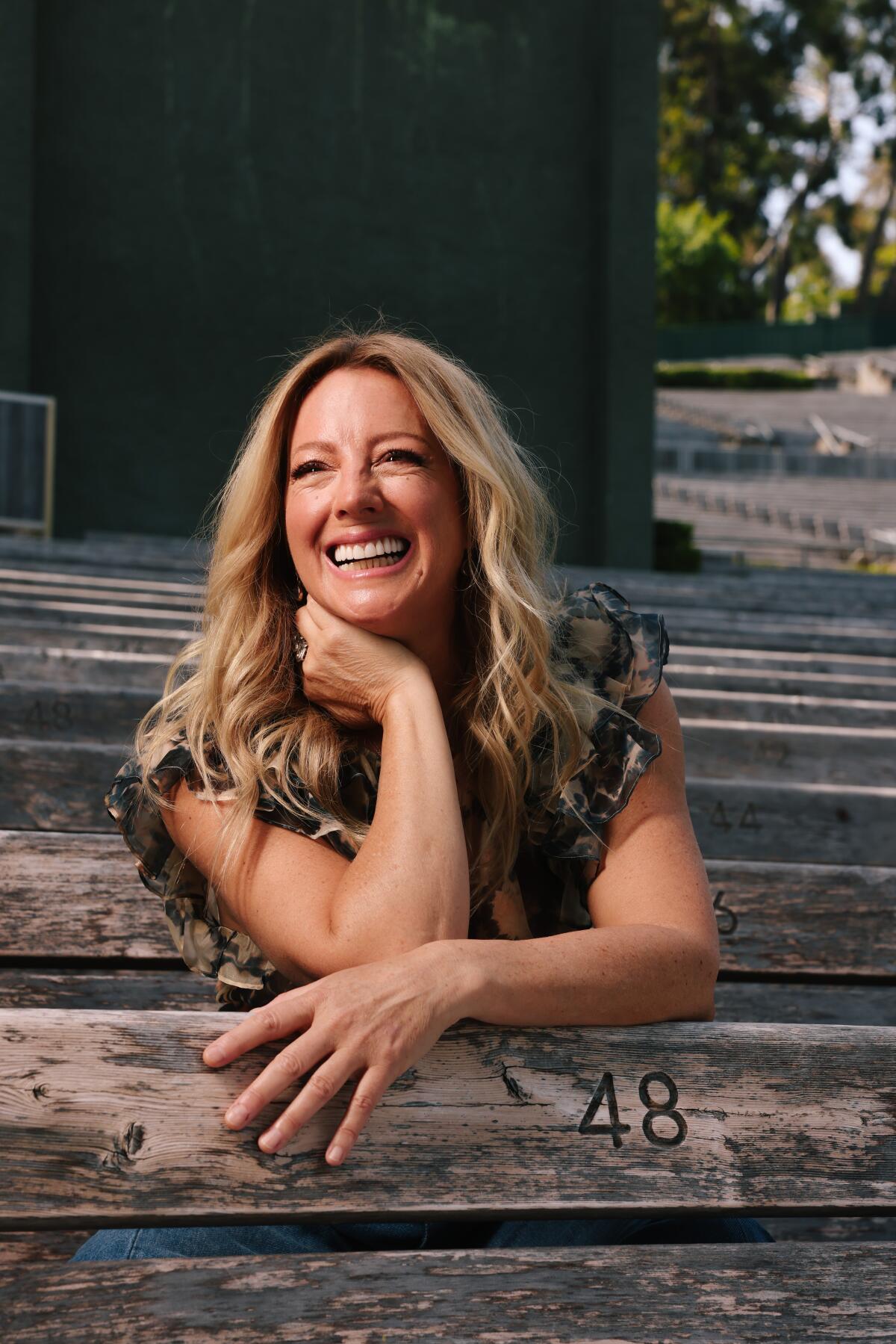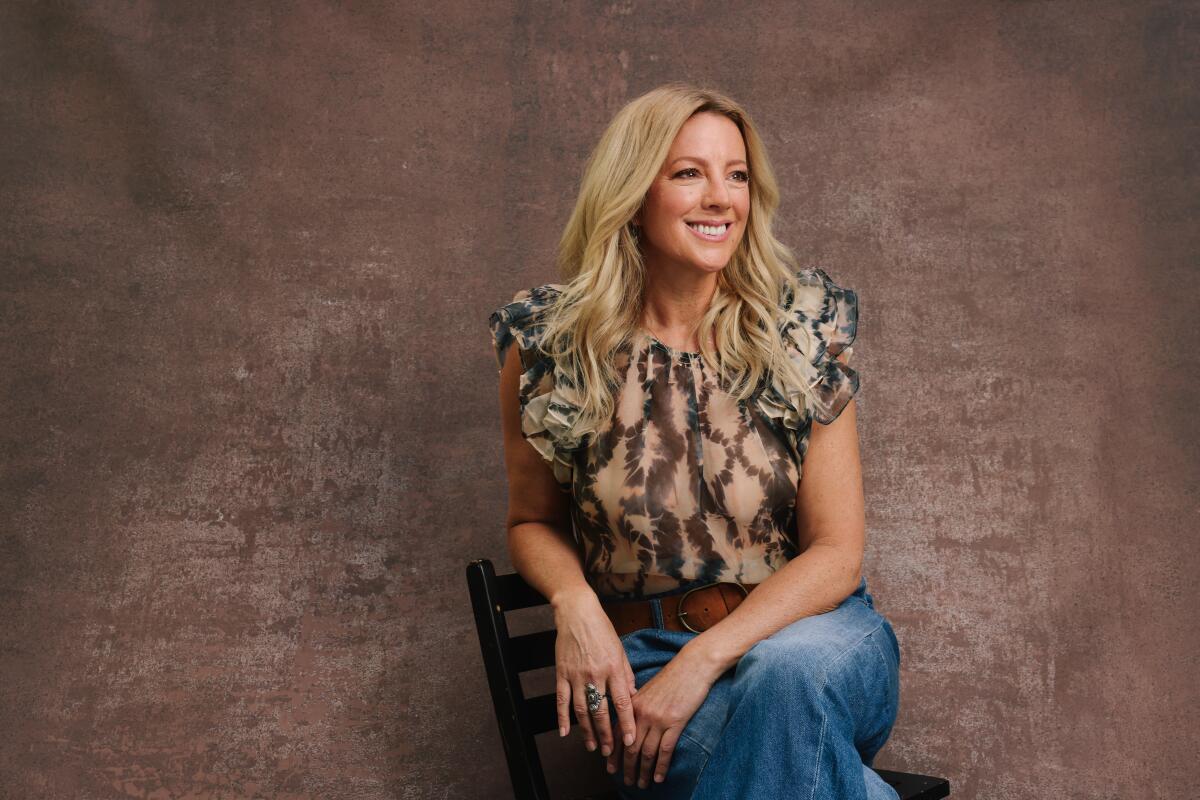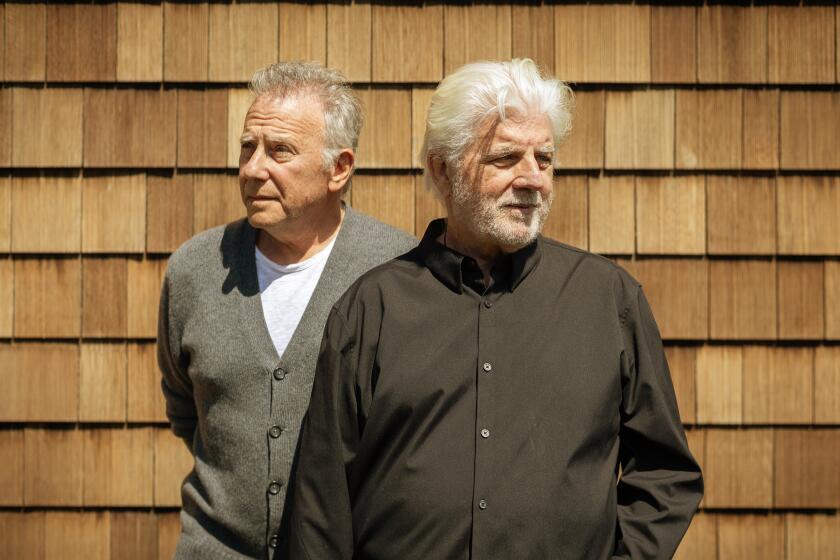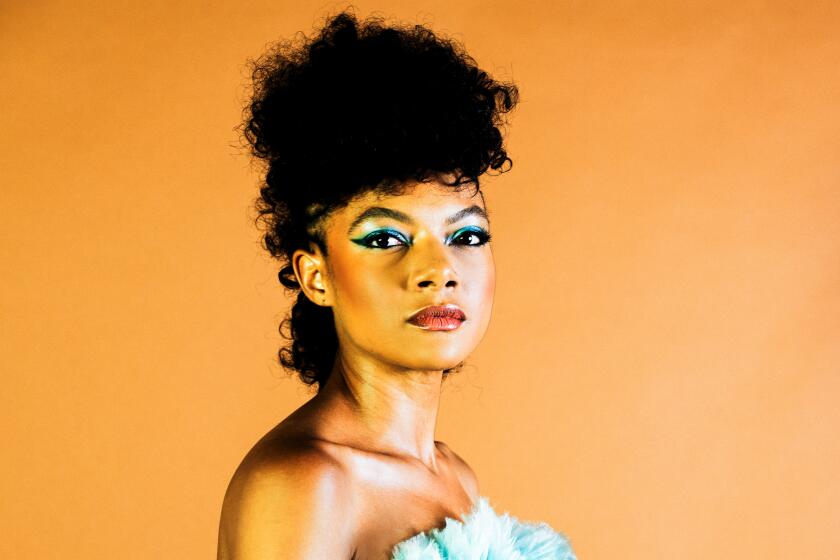30 years later, Sarah McLachlan looks back at the album that ‘felt to me like freedom’

- Share via
Sarah McLachlan thinks of her first trip to Los Angeles as a cautionary tale.
Signed to Clive Davis’ Arista Records when she was all of 20, the Canadian singer and songwriter from Halifax ventured south in 1989 to shoot a couple of music videos as part of Arista’s plans for an American edition of her debut album, “Touch.” The LP had introduced McLachlan as an ethereal art-pop dreamer in the thrall of Kate Bush and Peter Gabriel. Yet Davis and his partners had different ideas about how to present the singer to a U.S. audience.
“I remember a fitting with this stylist, who’d shown up with all these Jean Paul Gaultier suits with the huge shoulder pads,” McLachlan recalls. “Before, I’d just wear whatever, so I was like, ‘Umm…’ But I tried them all on because I was a good little Canadian girl and I did what I was told.” She laughs. “I’d come down not even thinking about my body shape or what my face looked like, and after six days in L.A., there was this sense of ‘Maybe you could lose 10 pounds,’ and ‘We’ll have to do something with this hair’ — this undercurrent that I wasn’t OK the way I was.
“I thought: If I stay here, I’m f—ed.”

McLachlan didn’t stay, returning instead to Canada, where she continued honing her style until she became a star on her own terms: a sensitive but muscular balladeer known for her pristine vocals and for the searching, philosophical tone of hit songs like “Adia,” “Possession,” “Angel” and “Building a Mystery.”
“The game you’re expected to play to be in this world — I just knew I’d like to have as little as possible to do with it,” McLachlan, 56, says with a smile during a recent trip to L.A. to play the late-night show “Jimmy Kimmel Live!” ahead of a tour marking the 30th anniversary of her third album, “Fumbling Towards Ecstasy.” Released in October 1993, just as grunge was about to give way to other sounds on radio and MTV, the LP was McLachlan’s pop breakout, selling 3 million copies in the U.S. and setting up the massive success of 1997’s eight-times-platinum “Surfacing,” which spun off a pair of top 5 singles on Billboard’s Hot 100 and won a Grammy Award for female pop vocal performance.
Hanging out under the late-morning sun at the Hollywood Bowl, where she’ll perform “Fumbling” in full (along with a set of hits) on Friday night, McLachlan remembers the 1993 album as a feat of cloistered introspection: She and her longtime producer, Pierre Marchand, made the record largely by themselves in a remote studio in Quebec’s Laurentian Mountains.
“I think that’s when I discovered that I’m actually an introvert,” she says of the yearlong recording process. “I need to go away and be by myself.”
After meeting at a party, singer Michael McDonald and actor Paul Reiser teamed up to write McDonald’s memoir, “What a Fool Believes.”
Yet the current tour provides an opportunity to assess the long reach of McLachlan’s music, which laid crucial groundwork for the deep-feeling likes of Brandi Carlile and Florence + the Machine and did much to bring the now-ubiquitous language and rituals of self care into the realm of pop songwriting. Consider a tune like “Good Enough,” a meditation on empathy set to a gently undulating groove, or the hymnlike “Elsewhere,” in which McLachlan yearns for a “space where I can breathe.”
“It would be difficult to overstate the influence of Sarah McLachlan on my work and ethos,” says Allison Russell, the Montreal-born singer-songwriter who’s serving as one of McLachlan’s opening acts on the road.
Russell, whose first public performance was singing McLachlan’s “Mary” at a high-school talent show, sees McLachlan’s music as “amplifying and connecting to the greater community of seekers, singers and lovers of equality and harm reduction.” (In 2016, Run-DMC’s Darryl McDaniels wrote in his memoir that hearing “Angel” pulled him back from the brink of suicide as he experienced depression in the late ’90s.)
Leslie Feist, another Canadian artist due to appear with McLachlan at the Hollywood Bowl, says that, for all the soothing textures in McLachlan’s work, “There’s nothing soft about her — there’s a strength at the core of her delivery of these messages and stories. It’s like a firm hug from a friend.”
In the age of Ozzfest and the Warped Tour, McLachlan drew on that fortitude in creating Lilith Fair, the traveling female-led music festival that many were reminded of last year, decades after the its debut in 1997, when Carlile convened an all-star crew (including McLachlan) to accompany Joni Mitchell in a concert at the Gorge Amphitheatre in Washington state.
Says Russell, who also performed that night: “Lilith Fair taught me about the power and necessity of circle work. I couldn’t be the artist, activist or mother I am today had Sarah not shown the way.”

McLachlan discovered music as an awkward kid in an unhappy home; she fell in with a ragtag group of musicians as a teenager and moved to Vancouver, where she still lives with the younger of her two daughters from a former marriage.
The warm reception of her second album, 1991’s “Solace,” persuaded those once-dubious record execs to allow her and Marchand to take their time with “Fumbling Towards Ecstasy.”
“I’d toured and toured and toured and built up a really solid fan base, and it’s not like they were spending a whole lot of money on me,” she says. “So ‘Fumbling’ really felt to me like freedom. I was single for the first time in my adult life” — she and Marchand had dated earlier but had broken up — “and I was living by myself in this little house in the woods. I don’t even remember having a hard deadline, though I’m sure we had one. But getting to fully immerse myself in music — I mean, having kids and everything now, I can’t even really imagine it anymore.”
“It was definitely a deep dive,” says Marchand, who reckons the length of the sessions for “Fumbling” enabled them to tune out what was going on around them — this was the era of Smashing Pumpkins and Stone Temple Pilots — and craft a richly detailed sound of their own. “If we’d done it in a month, you might’ve felt some of the influences from that time. But after a year, you’re really only plagiarizing yourself.”
The album opens on perhaps its darkest note with “Possession,” which McLachlan wrote from the perspective of an obsessed fan — a point of view she inhabited with such chilling acuity that a man from Ottawa later sued the singer, saying she’d used words from letters he’d sent her without giving him credit. (The man died before the case went to court.) But “Fumbling” is also home to one of McLachlan’s lightest tunes in “Ice Cream,” a flirty come-on that compares a lover to that frozen dessert.
Russell’s debut album exorcised the childhood trauma inflicted by her adoptive father. On her new LP, the queer Americana artist maps a funky path forward.
McLachlan says “Ice Cream” almost didn’t make it onto the album. “At that age, I was still very concerned with how I was perceived — I wanted to be taken seriously as an artist — and that song seemed very glib to me,” she says. What changed her mind was enlisting jazz drummer Guy Nadon, who “kind of brought it to a different place. He gave it some rub.”
The song has become a fan favorite: Just a couple nights before flying to L.A., McLachlan accompanied her daughter to a Justin Timberlake concert in Vancouver, where the guy sitting next to her happily informed her that he’d lost his virginity to “Ice Cream.”
“I was like, ‘Wow, OK — I just met you, but thanks.’”
For all the latitude he and McLachlan enjoyed in the studio, Marchand remembers “people from the record company saying, ‘We don’t know what radio stations to put this on.’” In fact, “Fumbling Towards Ecstasy” turned out to be a hit at the so-called hot AC format then bridging the gap between Top 40 and adult contemporary; “Angel,” from “Surfacing,” would eventually top Billboard’s adult pop airplay chart.
Asked whether she can see elements of her legacy in modern music, she winces. “That sounds really f—ing egotistical,” she says. “I love the idea of getting to be one of the aunties. But I don’t spend much time thinking about it.”

At the moment, she’s more concerned with what comes next. With her daughter due to move away soon for college, McLachlan has been chipping away at a new album, her first set of original songs since 2014, in L.A. with producer Tony Berg, who’s known for his work with Phoebe Bridgers and Beck.
“Lyrically, I’m still trying to figure out what I’m trying to say,” she says, though she notes that she’s written songs about her relationship with her daughter and their experience in family systems counseling. (“I’ve asked her if it’s OK for me to speak about this, and she’s like, ‘Oh God, it’s fine,’” she says.)
One conundrum of getting back into songwriting, she says, is the seeming disconnect between her mood these days and what comes out when she sits down at the piano.
“We’re in the studio making the saddest music ever and we’re just laughing our asses off the whole time,” she says. “I’m happier than I’ve ever been in my entire life, which I struggle with as an artist — like, am I representing myself?” She shrugs.
“We’ll see if I get it right.”
More to Read
The biggest entertainment stories
Get our big stories about Hollywood, film, television, music, arts, culture and more right in your inbox as soon as they publish.
You may occasionally receive promotional content from the Los Angeles Times.













